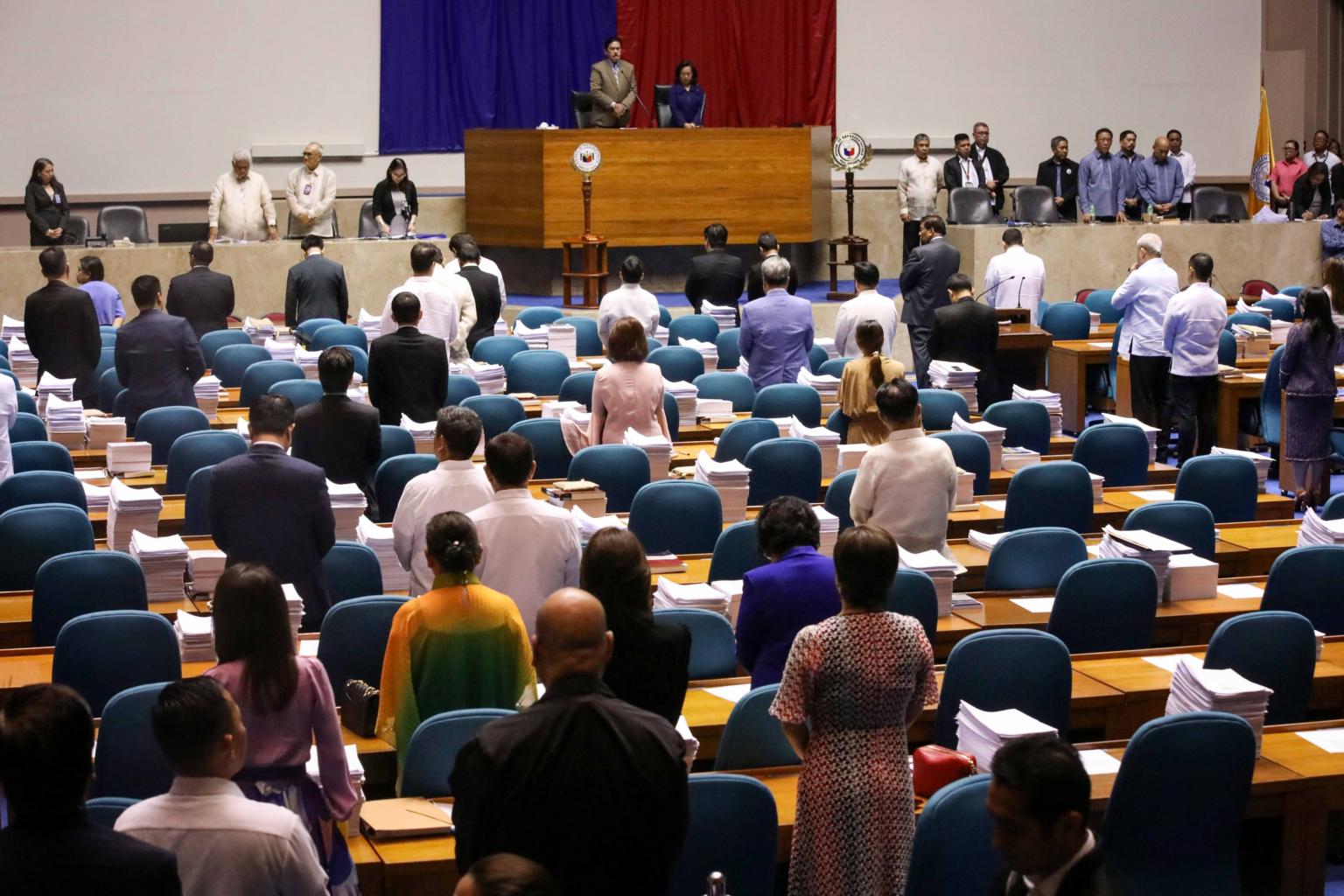Philippine lawmakers agree to extend martial law in Mindanao for another year
Sign up now: Get insights on Asia's fast-moving developments

Philippine lawmakers attend the joint session at the Philippine Congress in Quezon on Dec 12, 2018. Mindanao will be kept under martial law until Dec 31, 2019.
PHOTO: EPA-EFE
MANILA - The Philippine Congress voted on Wednesday (Dec 12) to extend for another year martial rule across the war-torn southern island of Mindanao.
In a joint session, 235 lawmakers granted President Rodrigo Duterte's request to keep Mindanao under martial law till Dec 31, 2019.
They agreed with assessments by security officials that Muslim terrorists still posed a threat, and were still recruiting fighters and fomenting rebellion across Mindanao.
Only 28 voted against the extension - the third so far - with one of them insisting "this cannot be the new normal for Mindanao".
Mr Duterte declared martial law across Mindanao hours after about a thousand Muslim militants, many from Indonesia and Malaysia, stormed the Islamist city of Marawi on May 23, 2017, and held on to parts of it for five months in what became the Philippines' biggest security crisis in years.
By the time the military declared victory on Oct 23, more than 1,000 militants, government troops and civilians were dead, half of Marawi was pulverised into rubble and dust, and about 400,000 people living in and near Marawi were forced to flee their homes.
Mr Duterte, in a letter sent to Congress last week, said extremists, under the sway of the Islamic State in Iraq and Syria (ISIS), "continue to defy the government by perpetrating hostile activities", citing attacks in recent months in Muslim-majority cities in Mindanao.
According to security officials, 143 terror suspects had been arrested under martial rule. Over 2,400 more are at large, said Defence Secretary Delfin Lorenzana.
Executive Secretary Salvador Medialdea told lawmakers the government was "at the cusp of ending rebellion in Mindanao".
Lifting martial law, however, would allow terrorist groups behind the Marawi siege, like the Abu Sayyaf, Bangsamoro Islamic Freedom Fighters and Daulah Islamiyah, to regroup, he said.
"Rebellion in Mindanao subsists. Notwithstanding the substantial gains achieved during the martial law period, we cannot turn a blind eye to the reality that Mindanao is still in the midst of rebellion," he added.
But opposition lawmakers disagreed with the assessment.
"This cannot be the new normal," said Senator Francis Escudero.
Representative Edcel Lagman said the "undue prolongation" of martial law "is an admission by the military and police authorities that they failed to achieve the purported objectives of martial law".
Senator Franklin Drilon, the minority leader, insisted that "there is no actual armed uprising that is taking place in Mindanao".
"Martial law is like antibiotic: It is only resorted to when normal over-the-counter drugs no longer work. We must not resort to it when other less extreme measures are available," he argued.
Lawmakers from a nationalist bloc said martial law had led to at least 155 cases of human rights violations in Mindanao.
Senator Risa Hontiveros said she also did not see a "cogent rationale for martial law that our existing legislation, and the capacity of our military forces, cannot address".
She warned that this third extension of martial law in Mindanao was especially troubling, as it would cover the midterm elections next year.
"The Executive has intimated that martial law will ensure the more orderly conduct of elections, and that it will prevent violence and lawlessness from tarnishing the electoral process. But both historical precedent and the track record of this administration give us reason to doubt," she said.


